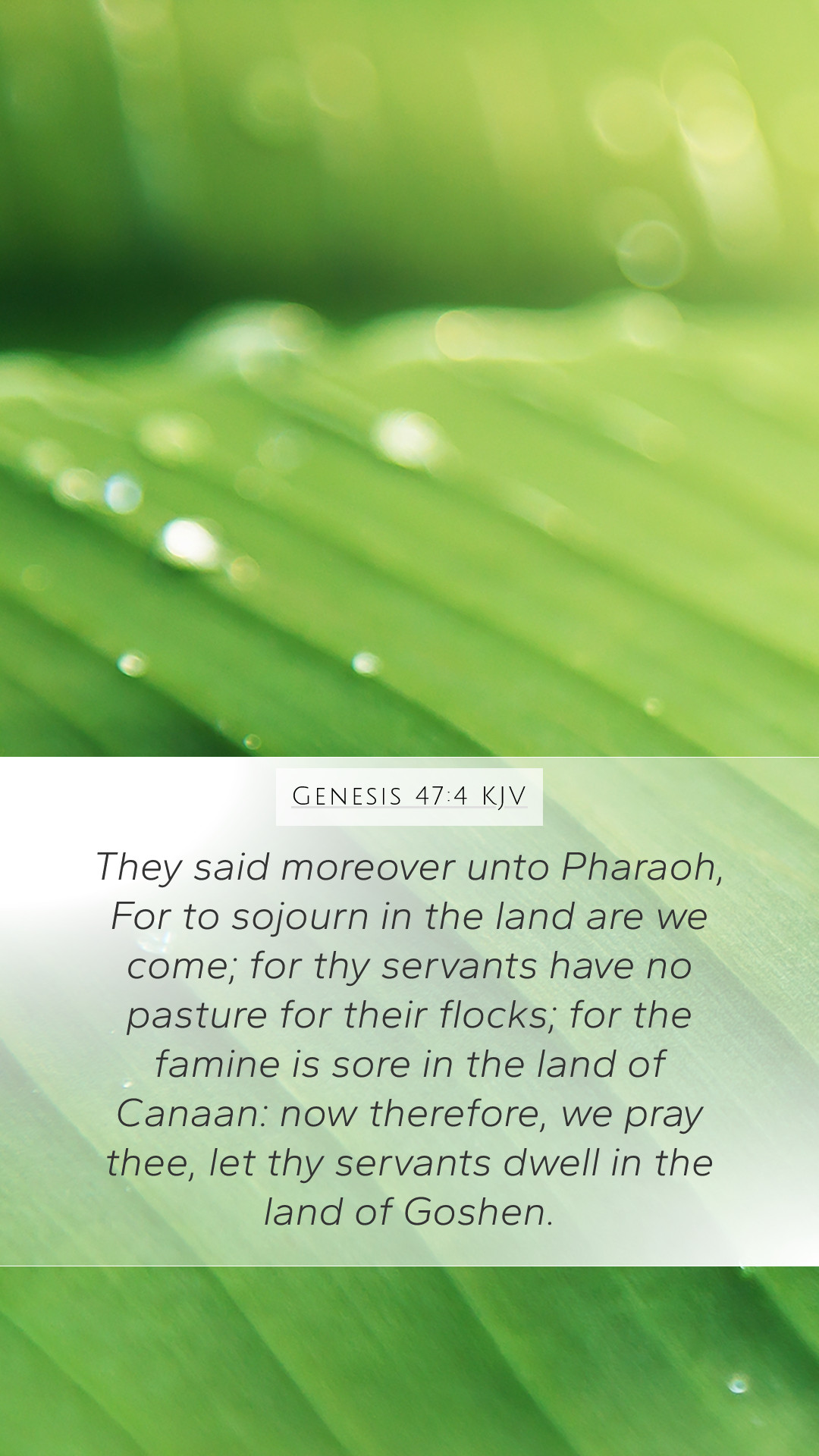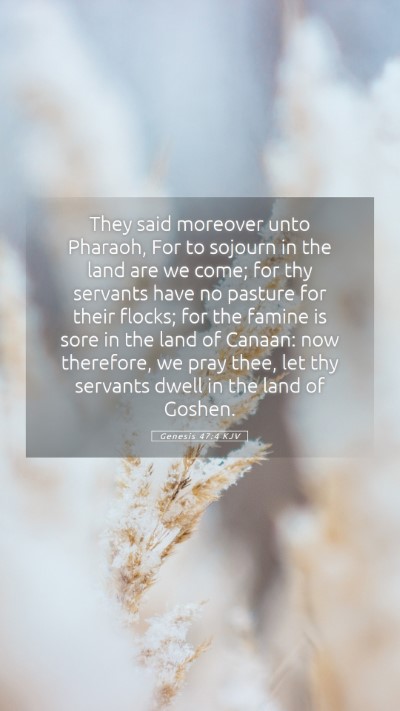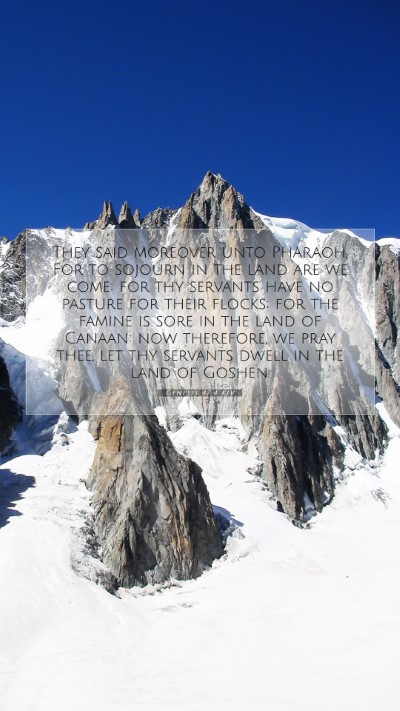Bible Verse Commentary: Genesis 47:4
Verse: "They said to Pharaoh, 'We have come to sojourn in the land, for there is no pasture for your servants' flocks, for the famine is severe in the land of Canaan. Now, therefore, please let your servants settle in the land of Goshen.'" (Genesis 47:4)
This passage reveals the plight of Joseph's brothers as they seek refuge in Egypt due to a severe famine in Canaan. Let's delve into the meaning of Bible verses, their interpretations, and understanding Scripture through insights drawn from renowned public domain commentaries.
Context and Background
The narrative provides a critical backdrop for understanding the history of Israel as it transitions to life in Egypt. The famine has affected the entire region, necessitating their desperate plea for assistance from Pharaoh. This event is pivotal not only in the life of Joseph but also establishes the framework for Israel's growth in Egypt, ultimately leading to their later bondage.
Insights from Commentaries
- Matthew Henry: Henry emphasizes the providence of God in allowing Joseph to rise to power in Egypt. He notes that the brothers' arrival is not merely a familial reunion but a fulfillment of God's plan. This verse illustrates their humility and recognition of their need for sustenance, highlighting the importance of acknowledging one’s vulnerability.
- Albert Barnes: Barnes provides a detailed analysis of the word "sojourn," suggesting it reflects their temporary state in Egypt. He points out the significance of Goshen, a fruitful area, symbolizing God’s provision for His people. The appeal to Pharaoh showcases their dire situation, which Barnes interprets as both a practical need and a spiritual lesson about reliance on God’s mercy.
- Adam Clarke: Clarke comments on the socio-economic implications of their request. He notes that their status as shepherds was looked down upon in Egyptian society yet shows God’s favor in leading them to a land where they could thrive. Clarke also draws parallels between their physical sustenance and spiritual nourishment, emphasizing the importance of seeking God during times of famine.
Interpretation of Key Themes
Divine Providence
The overarching theme of divine providence is evident in how the famine leads Joseph's family to Egypt. This aligns with the broader narrative of God's guidance throughout the Old Testament and serves as a reminder of God's sovereignty, which is a consistent echo in Bible verse commentary.
Human Dependence
The brothers' admission of their need reflects the human condition of dependence on God and others. This aspect encourages Bible study insights regarding humility and seeking help when in distress, a valuable lesson applicable across cultures and ages.
Significance of Place
Goshen represents not only a physical location but a metaphor for God’s provision. The choice of settlement indicates a place where God’s chosen people can prosper despite their hardships. In biblical exegesis, location often carries significant spiritual implications, as seen throughout Scripture.
Application to Daily Life
This verse serves as a profound reminder of the importance of recognizing our needs and the value of community assistance. In apply the Bible verses to daily life, this reflects a call to engage in Bible study groups to explore support systems among believers.
Cross References
- Genesis 37:12-36 - Joseph’s brothers' initial betrayal and the introduction of their family story.
- Genesis 41:30-31 - The prophesied famine that drives them to seek help in Egypt.
- Exodus 1:8-14 - The transition from prosperity in Goshen to oppression in Egypt.
Conclusion
In conclusion, Genesis 47:4 offers rich Bible verse interpretations that illuminate our understanding of reliance on divine provision, the significance of humility, and the importance of finding support during times of trouble. For those in Bible study lessons and courses, this passage serves as a foundational text that connects themes of faith, need, and divine guidance.


